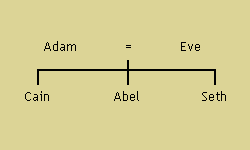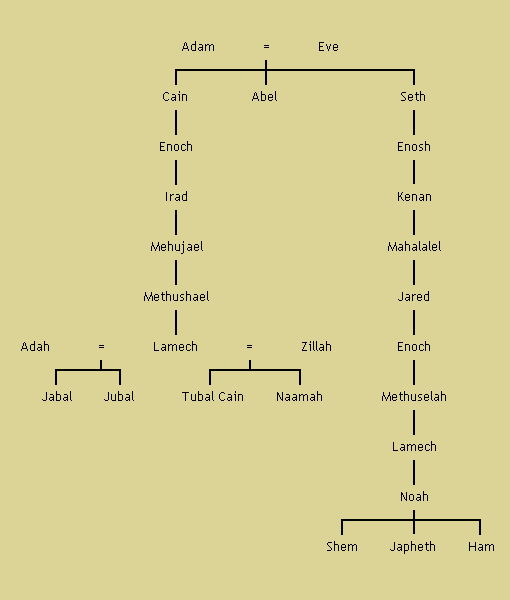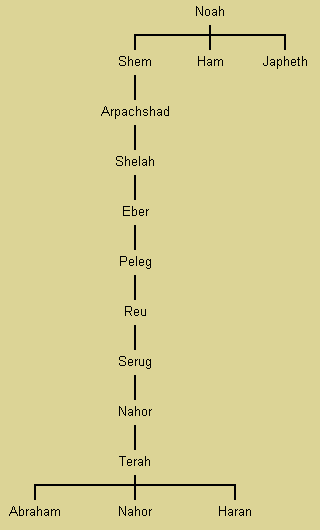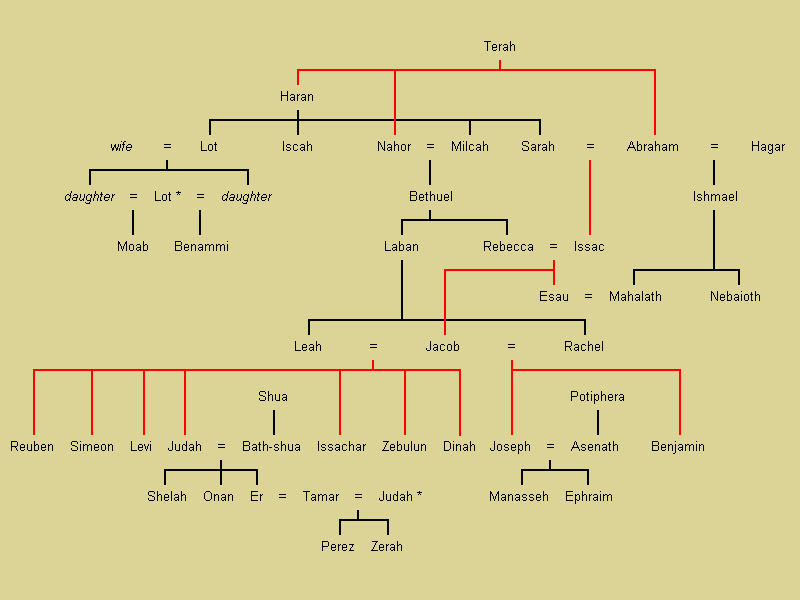Genesis: In Brief
We have an option where you can order essay that explains religious themes in detail.
Before I give you the summary about the Genesis, I think it would be appropriate to reveal something about the author of the first book of the Old Testament.
When I read the Genesis (Bereshit), I have a mixture of feelings: awe, fascination, curiosity and disbelief.
To most people, the Genesis is the most interesting and controversial book in the Bible. Some people take the whole of the Genesis, literally, while others have different interpretation to the scriptures. And others still looked at it with skepticism and disbelief.
The Genesis is one of five books that were ascribed to Moses, the Hebrew lawgiver, who led the Israelites out of slavery and Egypt towards the Promised Land - ancient Canaan. The first five books of the Old Testament were called Pentateuch, though the Jews called it Torah (Law). The Torah was fundamental core of the Hebrew/Jewish faith and religion. The books in the Torah are:
- Genesis (υένεσις, Bereshit)
- Exodus (έζοδος, Shemot)
- Leviticus (Λευιτικός, Vayikra)
- Numbers (Αριθοί, Bamidbar)
- Deuteronomy (Δευτερονόμθιομ, Devarim)
However, the Torah can also mean the whole of the Old Testament, which is seen as the Hebrew Bible, but I won't go into the rest of the Old Testament, here.
Canaan was known by many several names over time, such as Judaea, Palestine and Israel. The kingdom was divided into two after King Solomon, with Israel as the northern kingdom, and Judah as the southern kingdom. During Roman period, it was divided further into provinces - the most important being Judaea, while Galilee formed the northern Roman province. Many people just referred it to as the Holy Land, because three large religious faiths - Judaism, Christian and Islam - say that this Promised Land was the centre of their faith, particularly the city of Jerusalem.
God, in a covenant to the patriarch Abraham, promised this land to him. Abraham was the father of the Hebrew people. His grandson, Jacob, was the one who gave the name for the Jewish people, since his other name was Israel. Jacob's twelve sons make up the twelve tribes of Israel. It was Jacob who brought his family into Egypt, during a great famine, where his son Joseph had great power among the Egyptians, as governor.
Moses, himself, was the descendant of Levi, the son of Jacob. The Levites didn't received land as one of the tribe, because they were given priestly functions, enabling them to live within any land of the twelve tribes. Joseph, Levi's brother, had two sons, who formed two of the tribes of Israel.
Returning to the subject of the Genesis, the account in the Genesis comprised of the Creation, the Flood, and the lives of three important patriarchs before Moses' time - Abraham, Isaac and Jacob.
Although, the Genesis was set before Moses' time, the history of the Jewish people, as given in the Genesis, was revealed to Moses at Mount Sinai, in a revelation.
(Please note that you don't need to read this page, if you already read the Genesis. This is only a background for the other part of the site, and summary of the Genesis for those who have not read this book. However, you may find family trees on this page interesting.)
See also the timelines of the patriarchs and the Genesis.
God created the world in six days. He brought light on the first day. He separated the sky from the sea on the second day, and the sea from the land, with plants of all sort, on the third day. On the fourth day, He created the sun, moon and the stars. The fifth day, he filled the land, sky and sea with animals. (Genesis 1, 2:1-4)
In the sixth day, He created human being who resembled Him in form, creating male and female (Genesis 1:26-28), giving them control over other animals. The first two human were named Adam and Eve. God created Adam from the dust in the Garden of Eden; bringing his creation to life by blowing into his nostrils (2:7-9). He placed Adam in the Garden of Eden, where the first man named every animals and birds (2:19-20), but these animals were not suitable companions for man. So He then put Adam in a deep slumber, taking out one of his rib-bones to create Eve (2:21-24).
(Note that in chapter 1, God seemed to have made man and woman at the same time, but in chapter 2, Adam was created first, and Eve afterward.)
According to some later legends, Eve was not the first woman. Adam's first mate was Lilith, who was later transformed into a demon. I have devoted a page to Lilith.
God told them to eat from any fruit within the Garden, except the Tree of Knowledge that gives knowledge of what is good and what is bad. If they disobey they would die. There was another tree in Eden, called the Tree of Life.
But a snake, more intelligent than any other creatures, told Eve that they wouldn't die if she eat the fruit (possibly a fig), but she would become more like God. Eve ate the fruit from the Tree of Knowledge and gave a fruit to Adam to eat. Once they ate the fruit, they became aware that they were naked and felt ashamed of their nudity. They hid their nakedness with fig leaves.
When God realised that they had disobeyed Him, he punished the pair as well as the snake. The snake would crawl on its belly, and that he and his mate would hate one another. With Eve, she and all of her kind, would be subject to her husband, and suffer from the pang of childbirth. While Adam would have to toil on the harsh land, to find his own food. Both human would struggle and in the end of their life, their body would return to the soil, where he came from. (Genesis 3:1-21)
God then banished Adam and Eve from the Garden of Eden, where an angel with fiery sword barred them from returning to the Garden, to keep them from eating the fruit from the Tree of Life. (Genesis 3:22-24)
 In exile, Eve bore Adam two sons - Cain and Abel. Cain was a farmer, while his brother was a shepherd. When the two brothers offered sacrifice to God, God found the lamb as a more pleasing offering than Cain's harvest. Cain was jealous of God favouring his brother, so he murdered his brother. God punished Cain for his crime, by branding him, causing Cain to wander as a nomad. (Genesis 4)
In exile, Eve bore Adam two sons - Cain and Abel. Cain was a farmer, while his brother was a shepherd. When the two brothers offered sacrifice to God, God found the lamb as a more pleasing offering than Cain's harvest. Cain was jealous of God favouring his brother, so he murdered his brother. God punished Cain for his crime, by branding him, causing Cain to wander as a nomad. (Genesis 4)
Eve gave Adam, another son, named Seth, who became the ancestor of the Hebrew race. The Genesis does mention that Adam and Eve had other children, but give us no names (Genesis 5:4).
According to the pseudepigrapha Book of Jubilees mention they had nine sons, and also say that Cain married his sister Awan, while Seth's wife, Azura, was also Seth's sister.
Since Adam and Eve were the first couple, Cain and Seth could not possibly marry women from other families, so incest was practiced among the early patriarchs. By Moses' time, incest was against the law.
Many of the events about Adam and Eve in the Genesis are rewritten in the Gnostic texts found at Nag Hammadi, which you will find in Gnostic Cosmogony.
The Genesis then goes on to list the descendants of Adam, before the time of the Flood. Though each patriarch had other children, the Genesis only listed the direct line from Adam to Noah.
Of these descendants, two of them were of great interest. One was Enoch, son of Jared, and the other was Methuselah, Enoch's son. (Genesis 5:18-25)
Enoch enjoyed a personal fellowship with God, and when he was 365 years old, God took him to heaven, without this patriarch ever meeting his death. Several legends and pseudepigrapha texts have been written about Enoch. The Genesis didn't give us much detail about either patriarch, so I had to look for other texts about Enoch. See Enoch and the Book of Watchers.
Methuselah was the oldest to ever live; he died at the age of 969, on the same year as the Flood.

Mankind was flourishing since Seth and Cain, populating the Earth with people. However, a storm was brewing, bring apocalyptic changes in the wind.
Supernatural beings, known as angels and as the Watchers (or more precisely, the "Fallen Watchers", as opposed to the "Holy Watchers"), looked down from heaven and saw how pleasing the young daughters of men, so that they took them as wives. The Watchers sired offspring that were "heroes of the past". These offspring were called Nephilim, and later legend they were described as giants.
God was not pleased with these unholy unions of angels and mortal women, and with these half-mortal beings (giants or Nephilim). God saw that mankind have become wicked, and decided to wipe out the entire human race, as well as the animals of the air and land. God decided to send a Flood. (Genesis 6:1-8) See the Book of Watchers.
Only one patriarch was pious, and his name was Noah. Noah was a son of Lamech and grandson of the patriarch Methuselah.
God decided to save Noah and his family. God instructed Noah to construct a wooden vessel, called the Ark. Noah was 500 when he received his instruction to build Ark, so that he could survive the Flood. After this revelation of the coming Deluge, Noah sired 3 sons.
Noah was 600, when he boarded the Ark, with his wife, his sons and their wives. Noah had also brought on board animals of all kind, in pair, male and female.
Rain and flood fell for 40 days and 40 nights, destroying animals, man and giants. Only those within the Ark were saved. They stayed in the Ark for 150 days, the water continuing to go down, until the Ark came to rest on the mountain of the Ararat range. (Genesis 6-8)
From there, Noah and his family left the Ark, and they began to repopulate the Earth. Noah had three sons, Shem, Ham and Japheth. All three sons had many descendants. Of interest in the genealogy, is Nimrod, son of Cush and grandson of Ham. Nimrod was the first conqueror; he began in the kingdom of Babylon, before annexing other kingdoms into his empire.
However, the Genesis was more interested in the descendants of Shem. It was from the Shem line, that Abraham was born. (Genesis 10-11)
Another interesting scene in the Genesis is the Tower of Babel. At the time, everybody spoke one language. Many of them settled in Babylonia. They built cities from bricks made from clay hardened under fire. When the people decide to make a tower that could reach the sky. God decided to disperse the people, by making people speak different languages, so they can't understand one another. So the people speaking different languages scattered all over the world. Abraham was perhaps born in this time.
In Dark Mirrors of Heaven, I am less interested in the rest of the Genesis (Genesis 12-50), which is about Abraham and his descendants, which you don't need to read, but for the sake of completeness, I have included here the summaries of these three patriarchs: Abraham, Isaac and Jacob.
Abraham and Isaac
Abraham was at first called Abram. He was the son of Terah, and brother of Nahor and Haran. Abraham was born in Ur, a city in southern Mesopotamia (Babylonia), but his father moved his family to Haran in the kingdom of Mari, northeastern Mesopotamia. Abraham was married to Sarah (at first called Sarai).

God spoke to Abraham, who was 70 when he left Haran. God promised Abraham many descendants and that his people would have the land of Canaan. Lot, his nephew, the son of Haran, joined Abraham in this journey.
At first, they were living in Shechem, in Canaan, until famine drove Abraham and his followers to Egypt. Abraham fearing for his life, ask Sarah to pretend that she was his sister, not his wife. Abraham knew that the Egyptian ruler would find Sarah very attractive. The Egyptian ruler was warned in his dream that he would die, if he slept with Abraham's wife. Fortunately for the king, he didn't have sex with Sarah, but he and his retainer was inflicted with disease. The ruler rebuked Abraham for the deception, and was told to leave Egypt. Sarah gained a Egyptian slave girl, Hagar, from the king.
They returned to southern Canaan, when Abraham and Lot decided to separate because their servants were fighting over the precedence of their masters.
Lot resided in the wicked town of Sodom, in the Jordan Valley. God destroyed Sodom and Gomorroh, but saved Lot and his family, except that Lot's wife was turned into a pillar of salt, when she looked back at the valley. (Genesis 19:23-29) Lot's two daughters decided each should have a son by their father, because there were no other men around in the valley. One son was named Moab, who was the ancestor of the Moabites, while the other son was named Benammi, the ancestor of the Ammonites. These two tribes would later become enemies of the Israelites.
Abraham fought in war against some kingdoms, particular against Chedorlaomer of Elam. Abraham was allied to Melchizedek, king of Salem. Melchizedek was known as the priest of the Most High God. After the victory, Abraham received a blessing from Melchizedek. (Genesis 14)
God again promised land for Abraham and his descendants and in covenant to this promise, Abraham and other male followers should all circumcise. (Genesis 15-1-21)
At the time, Sarah was barren, so she gave her husband her slave girl Hagar, as his concubine. Hagar became mother of Ishmael, who was said to be ancestor of the modern Arabic people. God did promise Abraham that he would have a son by Sarah, but both of them were aging. Sarah did not think this was possible, since she was so old. But she did fall pregnant and gave birth to Isaac. Sarah fearing that her son would lose his inheritance, she told Abraham that Hagar and his son, Ishmael, should leave them. Abraham reluctantly told his son to leave.
God later told Abraham to offer his son as sacrifice to Him. Abraham would have obey and gone through the sacrifice, but God intervened at the last moment. Apparently, the sacrifice of Abraham's only legitimate son was to test Abraham's faith and loyalty to Him. (Genesis 22)
When Isaac was older, Abraham sends one of his servants to find a non-Canannite wife for his son. His servant successfully returned from Haran, with Rebecca, daughter of Bethuel. Bethuel was the son of Nahor, Abraham's brother, and of Milcah, Abraham's niece and Sarah's sister. Isaac fell in love with Rachel and they were married.
Abraham died at the age of 175. Isaac and Ishmael buried their father beside Sarah, in the Machpelah Cave, near Mamre.
At Beersheba, Isaac and Rebecca had two sons, Esau and Jacob. Esau, the eldest son, was a great hunter, and favourite of Isaac, but his foreign wives made Rebecca angry. She favoured Jacob, and decided to help her son win Esau's birthright. Since Isaac was blind in his old age, he didn't know that his wife tricked him into giving the Esau's blessing to Jacob.
Fearing his brother's wrath, Jacob readily agreed to go to find wife from Laban, brother of Rebecca. On his way to Haran, Jacob slept, using a rock as his pillow. He had vision that his descendants would receive land that God had promised to Abraham. Jacob named this place Bethel.
Jacob worked for Laban, until he was worthy enough to marry his daughter. Jacob did fall in love with Rachel, Laban's youngest daughter, but Laban tricked Jacob into marrying Leah, his older daughter. To placate Jacob, Laban agreed to marry his other daughter to Jacob.
God favored Leah that she had four sons in succession. Jealous over her sister and her failure to give a son to Jacob, Rachel gave her slave girl (Bilhah) to Jacob as a concubine. Bilhah gave two sons to Jacob. Jacob also received another concubine (Zilpah), this one from Leah. Leah had two more sons, and a daughter named Dinah. Rachel did finally fall pregnant, and had a son named Joseph.
Around this time, Jacob decided to return home, with his family and the animals had gained from Laban. In his journey, he wrestled and subdued an angel at Peniel, who blessed him with the name Israel.
Jacob arrived home, where a reunion and reconciliation with his brother took place. Esau settled in the land, south-east of the Dead Sea, and he was the ancestor of the kingdom of Edom.
Rachel did have another son, Benjamin, giving birth on the road between Bethel and Ephrath. However, Rachel died and was buried there, which would later become the town of Bethlehem. Isaac died at the age of 180, shortly after Rachel. Isaac was buried in Mamre, near Hebron.

One of his sons, Judah, had unwittingly slept with his widowed daughter-in-law, Tamar, whom he thought was a prostitute; she gave birth to twin sons, Perez and Zerah (Genesis 38). It is from Perez that Judah's descendants would become rulers of the kingdom of Israel; particularly David and Solomon.
Jacob's ten older sons were jealous of Joseph, because he was their father's favourite, gaining a beautiful robe. One day, they jealously tossed into a dried well, and later sold Joseph to slave traders, where he was taken to Egypt. The brothers lied to their father, saying that wild animals killed Joseph, showing the grieving father Joseph's bloodstained robe. However, it was really God's plan that Joseph should go to Egypt.
In Egypt, he gained his freedom when he interpret the pharaoh's dream that Egypt would enjoy seven years of good crops but a famine lasting for seven years would come to Egypt and Canaan. The pharaoh listening to Joseph's advice, began storing the abundant crops, appointed Joseph as governor, a position of great power, only answerable to the king himself.
Back in Canaan, Jacob was forced to send his ten sons into Egypt, to buy grain, but keeping Benjamin with him. Joseph easily recognised his brothers. Joseph tricked his brothers into bringing their father and Benjamin into Egypt. Here, Jacob was happily reunited with his lost son.
Jacob and his sons stayed in Egypt, even after the famine ended. Jacob died in Egypt, seventeen years after departing from Canaan, aged 147, but his body was taken to Bethlehem, buried beside his wife Rachel. Joseph died 54 years later at the age of 110.
Jacob's descendants remained in Egypt, but Joseph's wisdom was forgotten, so that they became slaves to the Egyptians, until the time of Moses.
Jacob's sons were the ancestors of the twelve tribes of Israel. It is from his son Judah that Israel would have long line of kings, headed by David and his son Solomon. David would be the ancestor of Jesus, who would herald a new religion, Christianity.
Bible
There are many different translations of the bible, but I can only read English, so I have to find the appropriate translations. Although, I'd prefer to get my own books, there are some websites that provide the whole texts on the internet.
Good News Bible: Today English Version
United Bible Societies
1976; reprinted 1986
Tanakh: A New Translation of the Holy Scriptures
According to the Traditional Hebrew Text
The New Jewish Publication Society; 1985
Internet Sacred Text Archive
- Bible: King James' Version
- NJPS/index.htm" target="_blank">New Jewish Publication Society
(Hebrew Bible - translation of Tanakh)
Dark Mirrors of Heaven © 2006 Jimmy Joe.
All Rights Reserved.
See Copyright and Disclaimer notices for more information.
To contact me for feedback or about copyright, then go to the Contact page.
